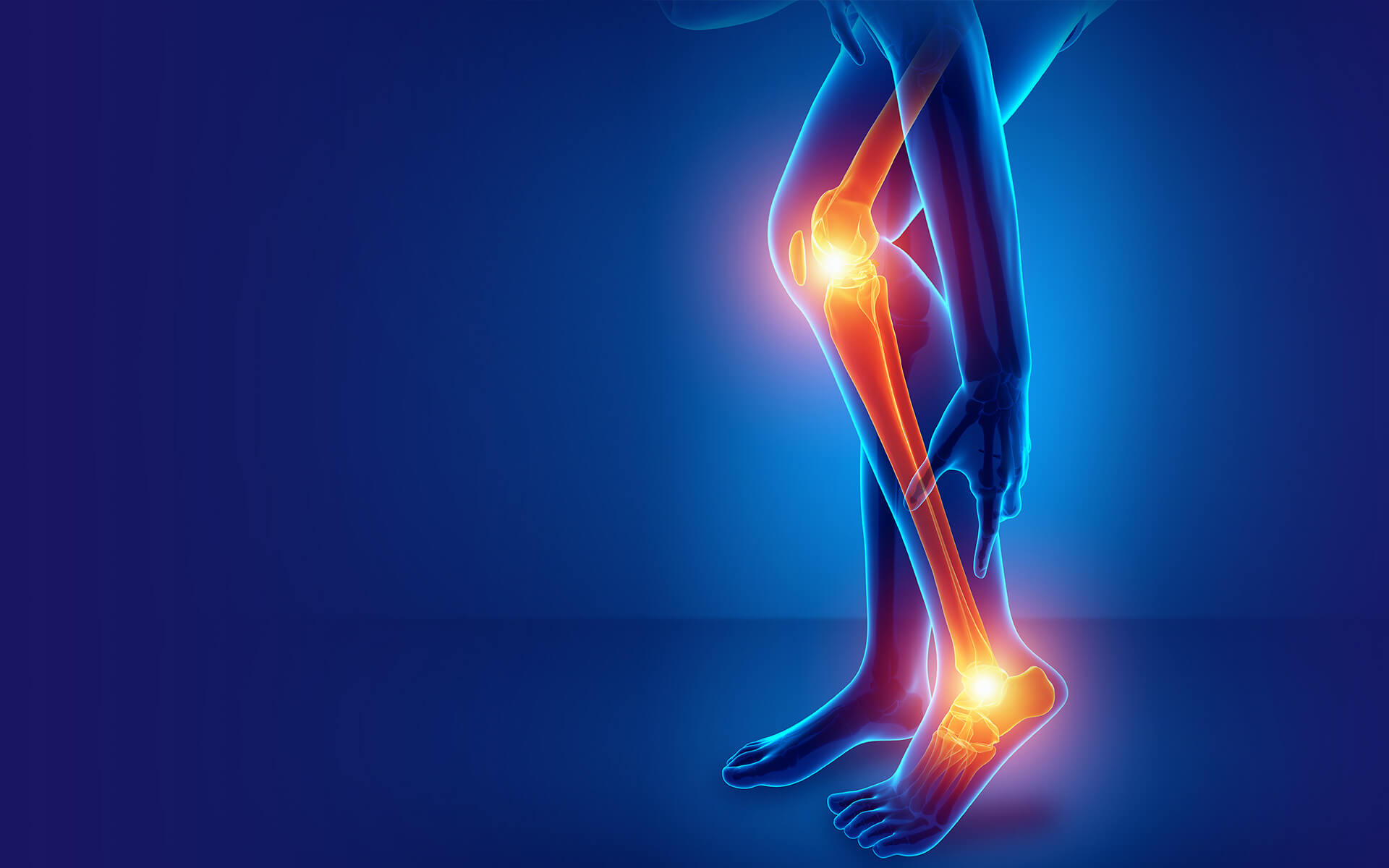Complex Regional Pain Syndrome (CRPS), also known as reflex sympathetic dystrophy (RSD), is a chronic and often debilitating condition characterized by intense pain and sensory disturbances. It typically affects one limb, such as an arm or leg, and can develop after an injury or trauma. The exact cause of CRPS is unknown, but it is thought to be caused by damage to the nerves in the affected area. This damage can be caused by an injury, surgery, or a medical condition.

Targeted Muscle Reinnervation (TMR)

What is Targeted Muscle Reinnervation? | Treating Phantom Limb Pain
What is Complex Regional Pain Syndrome?
Symptoms of CRPS
Complex Regional Pain Syndrome is associated with a wide range of symptoms. They can vary from person to person and may have different levels of severity and duration. These symptoms often include:
- Excessive pain
The pain is often described as burning, aching, or throbbing. It can be so severe that it interferes with daily activities. - Changes in skin color
The skin in the affected area may become red, pale, or blue. It may also be warm or cold to the touch. - Changes in skin temperature
The skin in the affected area may become warmer or colder than the surrounding skin. - Changes in sweating
The affected area may sweat more or less than the surrounding area. - Changes in hair growth
The hair in the affected area may grow more or less than the surrounding hair. - Changes in nail growth
The nails in the affected area may grow more or less quickly than the surrounding nails. - Swelling
The affected area may become swollen. - Limited range of motion
The affected area may become stiff and difficult to move. - Pain with movement
Movement of the affected area may cause pain. - Changes in sensation
The affected area may become numb, tingling, or painful to the touch
Causes & Risk Factors
- Injury or trauma
CRPS often develops after an injury, surgery, or fracture. It may occur even from minor trauma or surgeries. - Nerve damage
Damage to nerves in the affected limb can contribute to the development of CRPS. - Inflammatory response
An abnormal inflammatory response in the body may play a role in the development of CRPS. - Psychological factors
Emotional stress or psychological conditions, such as anxiety or depression, can potentially contribute to the development or exacerbation of CRPS.
Diagnosing Complex Regional Pain Syndrome
Diagnosing CRPS can be challenging, as there is no single test to confirm the condition. The diagnosis is made based on a physical examination and the patient's medical history. A comprehensive evaluation is necessary, and may include:
- Medical history review
The doctor will discuss your symptoms, previous injuries or trauma, and medical history to assess the possibility of CRPS. - Physical examination
The affected limb will be examined for signs of swelling, changes in skin temperature and texture, and motor dysfunction. - Diagnostic tests
Imaging tests, such as X-rays, bone scans, or magnetic resonance imaging (MRI), may be conducted to rule out other possible causes and assess bone and tissue health.
Treatments for Complex Regional Pain Syndrome
- Medications
Over-the-counter pain relievers, nonsteroidal anti-inflammatory drugs (NSAIDs), and in some cases, prescription medications can help manage pain and inflammation. - Physical therapy
Gentle exercises, stretching, and physical therapy techniques can improve limb function, reduce stiffness, and relieve pain. - Sympathetic nerve block injections
These injections deliver anesthetic medication directly into the affected nerves to block pain signals. - Spinal cord stimulation
A small device is implanted near the spine, delivering low-level electrical impulses to alleviate pain. - Nerve surgery
Surgery may be an option for people who do not respond to other treatments. Surgery may involve removing the damaged nerve or nerves, or it may involve transferring a nerve from another part of the body to the affected area. - Psychological support
Cognitive-behavioral therapy, counseling, and stress management techniques can help individuals cope with the emotional and psychological impact of CRPS.
Our Doctors
Patient Stories
Find a Location
Insurance Information
The Institute for Advanced Reconstruction participates in a wide range of insurance plans, including those listed below. However, each physician has their own accepted insurance and hospital affiliations. Before scheduling an appointment, please contact your insurance carrier to confirm that your provider is in-network.
If we are not an in-network provider, our friendly insurance specialists will help you find the most coverage available for your treatment.
- Horizon Blue Cross Blue Shield of New Jersey
- Medicare
- Railroad Medicare
- Aetna
- Cigna
- United Healthcare
- Oxford (Freedom, Liberty)
- MagnaCare
Related Articles
Exploring the Role of Scar Tissue: A Common Culprit in Post-Reconstruction Pain
When and How to Consult a Healthcare Professional for Testicular Pain
What is Pain Management? | Knowing When to See a Specialist
When to Consider Surgery for Chronic Pain: 5 Signs It’s Time To See A Pain Specialist
Patient Resources
Stay informed about the latest developments, resources, and research on Complex Regional Pain Syndrome CRPS by exploring our patient resources. Gain knowledge about the condition, its treatments, and potential new advancements. These resources can help you find information, connect with others facing similar challenges, and access additional support.
Are you a candidate for nerve surgery?
- Diagnosis
If you have been diagnosed with CRPS by a specialist, it is an important indicator that you may be eligible for treatment options specifically tailored to manage this condition. - Symptoms
The severity and type of symptoms you are experiencing can also play a role in determining your candidacy for treatment. For example, if you are experiencing severe pain that is interfering with your daily activities, you may be a good candidate for treatment. - Response to conservative treatments
If you have already tried conservative treatment methods such as physical therapy, medication, and nerve blocks without experiencing significant improvement in your symptoms, it may be an indication that you could be a candidate for more advanced treatment options. - Overall health
Your overall health and medical history will also be considered when determining your candidacy for treatment. For example, if you have other health conditions that could affect your ability to tolerate certain treatments, your doctor may recommend different treatment options.
If these procedural treatments interest you, please schedule a consultation with one of our specialists to discuss your options.

.webp)



